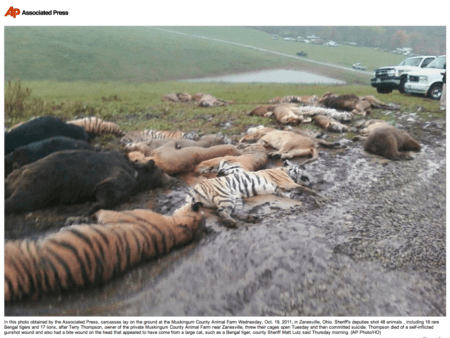Why Big Cat Rescue Didnt Have a Fur Ball in 2011
Charities trim fundraising events to reflect economic reality
ST. PETERSBURG — On the social calendar, the hint of cool weather promises a whirl of galas, banquets and soirees that raise money for a good cause.
But with an uncertain economy prompting corporations and individuals to be more discerning in their giving, some organizations are rethinking expenditures on lavish fundraisers, donor appreciation gatherings and expensive mailings.
In St. Petersburg, All Children’s Hospital Foundation announced it will not hold its annual Society Banquet this year.
“Our decision to do this was based upon the many comments we have received urging us to be the best stewards of the funds donated for the care of those we serve,” a letter said.
Instead of the annual event, the thank-you banquet for donors that costs the foundation $100 a head for about 300 attendees will now be held every other year.
“I think donors really want greater accountability for their gifts,” said Thomas Mundell, the foundation’s executive vice president. “That’s why we continually look at ways we can save money.”
He said donors have sent notes supporting the decision.
That’s not surprising to Sandra Miniutti, vice president of marketing for Charity Navigator, which evaluates charities.
“In recent years, donors have become more aware just how costly special events can be and just how little of their money ends up benefiting the charity’s mission after expenses,” she said.
“And I believe donors and board members are putting more pressure on charities to improve the efficiency of their fundraising events or drop them altogether.”
The All Children’s foundation isn’t the only charity making adjustments.
In Tampa, the Muscular Dystrophy Association canceled its fall gala. WEDU, a public TV station, put its Sojourn gala on hold. Big Cat Rescue, a sanctuary for unwanted, abandoned or abused exotic big cats, called off its tribal Fur Ball and replaced it with a Phantom Fur Ball, a non-event that encouraged supporters to make online donations.
“In these economic times, when doing fundraisers, people should be more cost-conscious and creative,” said Shirley O’Sullivan, who has helped plan many such events.
“I will not work for people who spend a lot of money on an event. Expensive invitations, expensive food, expensive decorations. I find all that to be a total waste.”
The Junior League of St. Petersburg has resurrected its Whale of a Sale, a popular rummage sale last held in 2000.
“We feel that now, more than ever, there are so many people that are hurting in our community and that everyone is looking for a little bit of economic relief,” said Donna Mainguth, the organization’s president.
“We’ve had wonderful galas in the past, we’ve partnered with other organizations, but this is more of a direct link to the community.”
The YMCA of Greater St. Petersburg also rethought its strategy a few years ago and brought back its Businesses Building a Better Community Luncheon after a one-year hiatus. Though an important fundraiser, the organization slashed the $1,000 price for a table of eight in half.
“Smart charities are constantly evaluating their special events and their approach to thanking donors,” Miniutti said.
“They want to ensure that the events really offer a return on their investment — which isn’t just actual dollars, but also a significant amount of staff time needed to pull off these fancy galas. And the return of investment for charities isn’t just about the actual dollars on the night of the event.
“These events also help the charity build awareness of its mission and brand. And it helps connect the charity to new potential donors.”
Times staff writers Amy Scherzer and Mary Jane Park contributed to this article. Waveney Ann Moore can be reached at wmoore@sptimes.com or (727) 892-2283.
[Last modified: Nov 11, 2011 10:41 PM]
By Waveney Ann Moore, Times Staff Writer
In Print: Saturday, November 12, 2011
Why Big Cat Rescue Didn’t Have a Fur Ball in 2011
Our main reason for not holding the Fur Ball in 2011 was so that we could dedicate our resources to ending the abuse of big cats more effectively as part of a coalition. We have had great success in getting more than 60 malls to agree not to host the abusive displays of cubs. The bill to ban traveling acts that use wild animals was introduced. PetsMart agreed not to allow wild animals like tigers to be brought onto their properties in the US and Canada. The USFWS agreed that the generic tiger exemption should be rescinded and so did more than 15,000 citizens who wrote in. We are working to close the 8-12 week window during which USDA currently allows cub petting. We could not have been nearly as successful with all of this if we had spent the past several months party planning.
You can help us achieve our goals by donating to our Phantom Fur Ball



